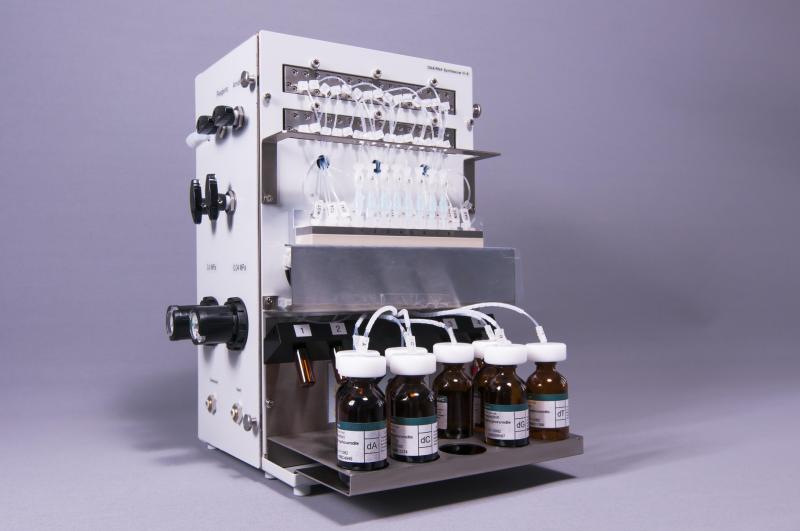Introduction
The DNA synthesizer market is at the forefront of modern scientific innovation, empowering researchers and scientists to decode the building blocks of life. DNA synthesizers play a pivotal role in various fields, including genetic research, biotechnology, drug development, and personalized medicine. This cutting-edge technology has revolutionized the study of genetics, enabling us to explore the intricate molecular basis of life. In this blog, we delve into the fascinating world of DNA synthesizers, their significance, and the burgeoning market that drives the advancement of genetic research.
The DNA Synthesizer: A Gateway to Genetic Manipulation
DNA synthesizers are sophisticated instruments designed to generate customized DNA sequences, allowing scientists to manipulate genes, create artificial DNA, and study the genetic makeup of organisms. These machines employ a method known as solid-phase synthesis, which involves adding individual nucleotides one by one to assemble the desired DNA strand. With the ability to create specific DNA sequences, researchers can delve into the functions of genes, unravel the mysteries of genetic diseases, and develop novel therapeutic strategies.
Applications of DNA Synthesizers
The applications of DNA synthesizers are far-reaching and diverse, including:
-
Genetic Research: DNA synthesizers enable scientists to create specific DNA probes and primers for gene expression analysis, genetic sequencing, and mutation detection.
-
Biotechnology: In the biotech industry, DNA synthesis is used to construct plasmids, vectors, and other genetic constructs used in gene editing and genetic engineering.
-
Drug Development: DNA synthesizers play a crucial role in producing synthetic DNA sequences for drug screening and the development of novel therapeutics, including gene and cell-based therapies.
-
Personalized Medicine: The ability to synthesize custom DNA sequences allows for personalized medicine approaches, such as creating gene therapies tailored to an individual's genetic profile.
-
Agriculture: DNA synthesizers aid in the creation of genetically modified organisms (GMOs) and improved crop varieties with enhanced traits.
Driving Forces in the DNA Synthesizer Market
-
Technological Advancements: Ongoing advancements in DNA synthesis technologies, such as high-throughput synthesis and error correction techniques, have significantly improved the efficiency and accuracy of DNA synthesizers.
-
Rising Demand in Genetic Research: The increasing emphasis on genetic research and personalized medicine has led to a growing demand for DNA synthesizers in laboratories and research institutions worldwide.
-
Growing Biotechnology Industry: The biotech sector's rapid expansion, especially in gene editing and genetic engineering, is driving the need for efficient DNA synthesizers to develop innovative therapies and products.
-
Cost Reduction: As the cost of DNA synthesis technology decreases, it becomes more accessible to a broader range of researchers and industries.
Challenges and Future Outlook
Despite its immense potential, the DNA synthesizer market faces certain challenges:
-
Quality Control: Ensuring the accuracy and reliability of synthesized DNA sequences remains a critical concern to avoid potential errors in genetic research and applications.
-
Ethical Considerations: The development of gene-editing technologies and synthetic biology raises ethical questions regarding the responsible use of DNA synthesizers.
-
Regulatory Landscape: As genetic research progresses, regulatory bodies must strike a balance between encouraging innovation and ensuring safety and ethical standards.
Conclusion
The DNA synthesizer market continues to propel genetic research into uncharted territory, opening up unprecedented possibilities for understanding and manipulating the blueprint of life. As technology advances and costs decrease, the application of DNA synthesizers is expected to expand across various fields, from medicine to agriculture, unlocking new opportunities for scientific breakthroughs. With responsible usage, collaborative research efforts, and ethical considerations, DNA synthesizers will undoubtedly play a pivotal role in shaping the future of genetic research and transforming the landscape of modern science. As we journey forward, the mysteries of DNA hold the promise of groundbreaking discoveries that may revolutionize the way we perceive and interact with life itself.
